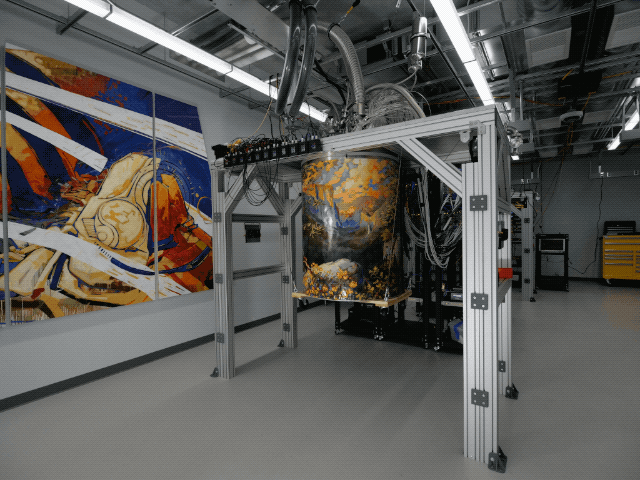 EMERGING TECH
EMERGING TECH
 EMERGING TECH
EMERGING TECH
 EMERGING TECH
EMERGING TECH
Google LLC said today that it’s on course to build a fully working, commercial-grade quantum computer that can perform large-scale calculations without any errors by the end of the decade.
The announcement came today at the virtual Google I/O developer conference today, where the company also unveiled its new Quantum AI Campus in Santa Barbara, California. It’s there that Google said it will develop its working quantum computer.
Quantum computing refers to a next-generation computer architecture that’s covered by the rules of quantum mechanics rather than classical mechanics. Quantum computing has enormous potential because such machines would be able to process, store and manipulate unimaginable densities of information, far more than classical computers are capable of.
Whereas classical computers store information as “bits,” which are either a zero or a one, quantum computers store information as “qubits,” which can be a zero, a one or both states at the same time. That makes them far faster than even the most powerful supercomputers today.
To deliver on the promise of quantum computing, Google has created its new Quantum AI Campus that houses the company’s first-ever quantum data center, its quantum hardware research laboratories and its quantum processor chip fabrication facilities.
In a video, Google lead quantum engineer Eric Lucero took the actor Michael Peña on a tour of the new facility, where he revealed the company’s plan to build a useful, error-corrected quantum computer. The company said that will “accelerate solutions for some of the world’s most pressing problems” around sustainable energy, reducing emissions, feeding the world’s growing population and developing more helpful artificial intelligence.
Lucero said Google is planning to deliver on its quantum computer before the end of the decade. Some of the first tasks it will be charged with include making more energy-efficient batteries, developing environmentally friendly processes for making fertilizer and creating more targeted medicines. Key to all that will be the quantum computer’s “ability to understand and design molecules better,” Lucero said.
“With an error-corrected quantum computer, we’ll be able to simulate how molecules behave and interact, so we can test and invent new chemical processes and new materials before investing in costly real-life prototypes,” he explained. “These new computing capabilities will help to accelerate the discovery of better batteries, energy-efficient fertilizers, and targeted medicines, as well as improved optimization, new AI architectures, and more.”
Charles King, an analyst with Pund-IT Inc., told SiliconANGLE that Google’s goal is ambitious but in keeping with some of the other moonshot projects the company is noted for. However, he pointed out that creating a working quantum computing system is just one part of commercial viability.
“Points like programming languages, software architectures, project management methodologies and many other issues will also need to be successfully addressed,” King said. “Eight years is a very long time in Silicon Valley and may be enough for Google to make quantum into a workable business.”
For all of Google’s good intentions, Constellation Research Inc. analyst Holger Mueller said, its real motivations were probably a bit more selfish. “Google wants to add quantum computing services to Google Cloud, but it also needs a quantum platform for its own, in-house usage,” he said. “So let’s not be too distracted by all the good and valid use cases for quantum in chemistry, security and more.”
The announcement means that Google is one of the few companies in the world to provide a concrete launch date for a quantum computer that lives up to the hype. It’s not the only one. One of its main rivals is IBM Corp., which has also published a roadmap that shows it’s aiming to deliver on a quantum processor that has more than 1,000 qubits of processing power by the end of 2023. That would be a big improvement over IBM’s current fastest processor, which tops out at just 65 qubits, though it remains to be seen what such a machine would be capable of.
THANK YOU